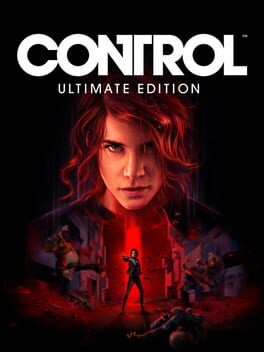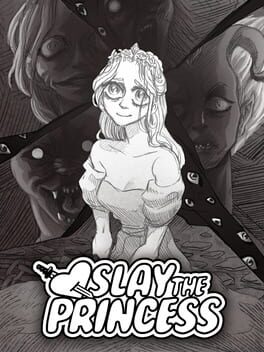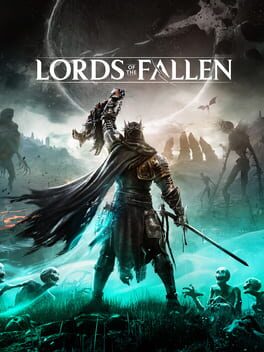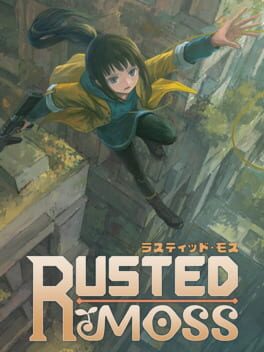NonJulianne
Bio
i like the videogames
they/them
"If history forgets [NieR: Automata], then fuck history"
-James Stephanie Sterling
i like the videogames
they/them
"If history forgets [NieR: Automata], then fuck history"
-James Stephanie Sterling
Badges

1 Years of Service
Being part of the Backloggd community for 1 year

GOTY '23
Participated in the 2023 Game of the Year Event

Liked
Gained 10+ total review likes

Best Friends
Become mutual friends with at least 3 others

Noticed
Gained 3+ followers

Pinged
Mentioned by another user

Roadtrip
Voted for at least 3 features on the roadmap

N00b
Played 100+ games
Favorite Games
191
Total Games Played
000
Played in 2024
024
Games Backloggd
Recently Played See More
Recently Reviewed See More
This review contains spoilers
Gestalt is an unified configuration of elements (biological, symbolical, physical, etc.) that has properties or characteristics that cannot be derived from the mere sum of its parts.
Signalis is a game of many different inspirations: survival horror, symbolist paintings, weird fiction, anime, retrofuturism, and many, many more. Yet to describe Signalis as belonging to any "canon" of its influences, or a more abstract "successor" is a disservice to the game.
Many (especially the least flattering reviews) have focused on this aspect of the game; it's successful (or failed) attempt at capturing the identity of some of the most beloved and influential pieces of art of this "era". Does it play like the memory of playing Resident Evil? Does it make you feel just like the time you played Silent Hill 2? Does it slowly creep on you like the slow descent into the madness of Lovecraft? Does it create a meaningful metaphor like the one that Evangelion left you with? Does it beacon you like Arnold Böcklin's evocative Isle of the Dead?
I find these questions utterly vapid.
I could talk about how the "classic survival horror gameplay" is perfectly executed, being at the same time deeply rewarding for the adept and knowledgeable, and incredibly punishing for those who don't have a grasp on it. How the constant threat of lingering enemies, the fear of losing your last hour of progress that you so stupidly forgot to save, creates a balance of tension on the player comparable to the one experienced by the character.
I could talk about the artstyle: a perfect blend of gorgeous pixel art and PSX models with a "slick, modern look" that fits perfectly the motifs of it's archaic but futuristic technology. The glitching and scanlines of the player's world married so perfectly to the setting of the game. How this principle extends not just to the visuals, but to the sounds; both music and effects. The soundtrack, the radio signals, the screams, the shots, the beating of the flesh. Everything coming together cohesively to deliver the setting with impeccable immersion.
I could even about how the ways to achieve the endings explore a deeper relationship between the player and the character. Elster's final "choice" is based entirely on how the player approaches the game (and yes, this includes the Artifact ending). It may be frustrating for certain "completionist" players, but that's the point: you're not meant to get everything, you're meant to experience what your Elster would do. That's your "true" ending, that's what happened in the loop you played. The requirements are so obscure and impossible to fully control (for the three "base" endings) exactly so that the player can feel a deeper connection between their style of play and the ending they got.
The Artifact ending is just yet another iteration on this. Approaching the game as a game. The ARG elements are simply yet another "playstyle", and thus deserving of its own ending, carrying possibly the same "meta" connotations that the playing session did.
But even all this is just scratching the surface of Signalis. This is just the sum of the parts.
-
The King in Yellow is a fictional play in the homonymous book by Robert W. Chambers. The play appears as a connecting tissue between all the different stories of the book, as a forbidden entity, something that for some unknown reason drives character to madness or ruin.
Signalis's narrative is convoluted to say the least. Questions often lead to more confusion than a definitive answer; and while there's definitely plenty to figure out by paying close attention, not everything is meant to be "solved".
Living in [current year], lore discussion is inevitable. People fighting with each other and themselves to find the one true reading of the game. The dreaded question: "What is this game actually about?". Humanity? Personhood? Conviction? Love? Loss? Trauma?
As many have said, but it warrants repeating, there is no true answer. Signalis is not an allegory, the violent imposition of THE reading of the work.
Signalis is about a lot of things.
I, as a queer lesbian so deeply obsessed with futuristic bodies, can't help but make it about love. A love so strong and so resonant that it breaks the whole fabric of the world.
Of course, my reading of this continues, but that's the main point. And while I do think that people downplaying or outright opposing the weight of the romance in the narrative are blind and obtuse at best (and "not-so-nice-people" at worst), I do think one can get plenty more out of this game, without it necessarily nullifying anything else.
The searches for the one true meaning are, frankly, insane. Nothing is gained by forcing Signalis into a box of allegory, making unbreakable links between what is figurative and what is "actual".
You can, obviously, interpret Signalis wrong, but the right way, the correct answer, is nowhere to be found.
-
Gestaltzerfall is shape decomposition. When a complex shape is observed for a long time, it decomposes in the mind of the observer, only appearing as the connected parts that make it.
I don't think there's anything quite like Signalis.
It is not "Silent Hill 2 but". It is not "Lovecraft but". It is only Signalis.
I finished this game long before writing this review. I had thought "what a nice little game" at first, until I found myself slowly thinking about it more and more.
It has stayed as a constant presence in my mind more than any game ever did. It is now an inseparable part of me. It shaped me.
Signalis is an experience unlike any other.
It's love, it's pain, it's fear, it's joy.
It is hope, it is angst. It is death, and it is life.
Signalis is a game of many different inspirations: survival horror, symbolist paintings, weird fiction, anime, retrofuturism, and many, many more. Yet to describe Signalis as belonging to any "canon" of its influences, or a more abstract "successor" is a disservice to the game.
Many (especially the least flattering reviews) have focused on this aspect of the game; it's successful (or failed) attempt at capturing the identity of some of the most beloved and influential pieces of art of this "era". Does it play like the memory of playing Resident Evil? Does it make you feel just like the time you played Silent Hill 2? Does it slowly creep on you like the slow descent into the madness of Lovecraft? Does it create a meaningful metaphor like the one that Evangelion left you with? Does it beacon you like Arnold Böcklin's evocative Isle of the Dead?
I find these questions utterly vapid.
I could talk about how the "classic survival horror gameplay" is perfectly executed, being at the same time deeply rewarding for the adept and knowledgeable, and incredibly punishing for those who don't have a grasp on it. How the constant threat of lingering enemies, the fear of losing your last hour of progress that you so stupidly forgot to save, creates a balance of tension on the player comparable to the one experienced by the character.
I could talk about the artstyle: a perfect blend of gorgeous pixel art and PSX models with a "slick, modern look" that fits perfectly the motifs of it's archaic but futuristic technology. The glitching and scanlines of the player's world married so perfectly to the setting of the game. How this principle extends not just to the visuals, but to the sounds; both music and effects. The soundtrack, the radio signals, the screams, the shots, the beating of the flesh. Everything coming together cohesively to deliver the setting with impeccable immersion.
I could even about how the ways to achieve the endings explore a deeper relationship between the player and the character. Elster's final "choice" is based entirely on how the player approaches the game (and yes, this includes the Artifact ending). It may be frustrating for certain "completionist" players, but that's the point: you're not meant to get everything, you're meant to experience what your Elster would do. That's your "true" ending, that's what happened in the loop you played. The requirements are so obscure and impossible to fully control (for the three "base" endings) exactly so that the player can feel a deeper connection between their style of play and the ending they got.
The Artifact ending is just yet another iteration on this. Approaching the game as a game. The ARG elements are simply yet another "playstyle", and thus deserving of its own ending, carrying possibly the same "meta" connotations that the playing session did.
But even all this is just scratching the surface of Signalis. This is just the sum of the parts.
-
The King in Yellow is a fictional play in the homonymous book by Robert W. Chambers. The play appears as a connecting tissue between all the different stories of the book, as a forbidden entity, something that for some unknown reason drives character to madness or ruin.
Signalis's narrative is convoluted to say the least. Questions often lead to more confusion than a definitive answer; and while there's definitely plenty to figure out by paying close attention, not everything is meant to be "solved".
Living in [current year], lore discussion is inevitable. People fighting with each other and themselves to find the one true reading of the game. The dreaded question: "What is this game actually about?". Humanity? Personhood? Conviction? Love? Loss? Trauma?
As many have said, but it warrants repeating, there is no true answer. Signalis is not an allegory, the violent imposition of THE reading of the work.
Signalis is about a lot of things.
I, as a queer lesbian so deeply obsessed with futuristic bodies, can't help but make it about love. A love so strong and so resonant that it breaks the whole fabric of the world.
Of course, my reading of this continues, but that's the main point. And while I do think that people downplaying or outright opposing the weight of the romance in the narrative are blind and obtuse at best (and "not-so-nice-people" at worst), I do think one can get plenty more out of this game, without it necessarily nullifying anything else.
The searches for the one true meaning are, frankly, insane. Nothing is gained by forcing Signalis into a box of allegory, making unbreakable links between what is figurative and what is "actual".
You can, obviously, interpret Signalis wrong, but the right way, the correct answer, is nowhere to be found.
-
Gestaltzerfall is shape decomposition. When a complex shape is observed for a long time, it decomposes in the mind of the observer, only appearing as the connected parts that make it.
I don't think there's anything quite like Signalis.
It is not "Silent Hill 2 but". It is not "Lovecraft but". It is only Signalis.
I finished this game long before writing this review. I had thought "what a nice little game" at first, until I found myself slowly thinking about it more and more.
It has stayed as a constant presence in my mind more than any game ever did. It is now an inseparable part of me. It shaped me.
Signalis is an experience unlike any other.
It's love, it's pain, it's fear, it's joy.
It is hope, it is angst. It is death, and it is life.
I don't consider myself a "fan" of Armored Core, mostly because I hadn't really played any games before the announcement of ACVI.
I knew about the franchise but since I've never owned a home console until the PS4, these games kinda went past me.
I've also never played other mech games, mostly for the same reasons, but also because it's never been a "passion" of mine.
I have played AC2, AC4 and FA since the announcement, so my opinions aren't those of a veteran, nor of a newcomer.
ACVI is definitely the best AC game I've played. In terms of narrative, presentation, moment-to-moment gameplay, this game is excellent.
It might be more "streamlined" compared to other entries (slightly less parts, hard lock-on, generous amounts of checkpoints) but the implementation of this streamlining doesn't take anything away from the game. While helpful for new players, in order to achieve S rank goals or be proficient at multiplayer, one must engage with every amount of depth this game offers, which is a lot.
Hard lock-on isn't really something you want on at all times, respawning at checkpoints makes S ranking impossible, and making a truly solid and synergetic build is essential for PvP.
This approach is not unique by any means but it's always nice seeing it done this well.
Armored Core as a franchise definitely shaped From's style of narrative presentation: hints of a world scattered around, minimal cutscenes and dialogue, the use of in-game items to fill in the gaps. It's clear playing the rest of the franchise just how much of From's approach to games comes from what they worked on early on (Evergrace and King's Field included).
ACVI still maintains that approach but is also very upfront and direct about its story. Motives and events are clearly explained and happen essentially right in front of the player. By the time one reaches NG+2, everything about the story should be clear. It's not as "traditionally told" as Sekiro was, but it could be considered a middle ground between that and what got popularized with the Souls games.
It's not a unique or subversive story, but it works wonderfully. The characters and their relationships are compelling, even when they are of almost no consequence. It might be predictable but it never once misses a beat. It's great.
While this is my favourite entry in the franchise (might change once i play 3rd and 5th gen) it doesn't outshine its predecessors in everything.
In AC2 everything could be deadly if you were not prepared. The environment and basic enemies are not just filler, they are a legitimate obstacle to be taken into consideration. In ACVI this is not the case.
The game focuses way more on "traditional" boss fights: big enemies with big health bars that do big damage. While enemy ACs are still a thing, and make a lot of the engaging combat moments of the game, they feel a little under-tuned. If you've set up a competent build, many of the AC fights (especially in the Arena) become trivial, losing the weight that these kinds of fight had in earlier games.
The big bosses don't suffer from this, but they introduce another problem, the stagger mechanic.
Pitched as a "way to do more damage", the stagger mechanic reveals itself early on to actually be the only way to do damage. So much so that it becomes THE central thing to build around.
In this way, ACVI offers a lot less variety of gameplay compared to other entries. Not to say there is no variety, there's plenty, every weapon actually feels distinct and makes you approach combat in a noticeably different way; but the gameplan overall remains the same for everything. ACVI wants you to build up stagger and then cash in with big burst damage. You have to do this. Your choice is just how you want to do this. It's an important and fun choice, but I can't help but feel like there was something missing with the decision to do this.
Big bosses really suffer from this, as their incredible individuality gets pretty lost when you approach all of them essentially the same way.
Overall, however, I'm making this way more of an issue than it actually is. It's there, and it was noticeable to me, but it doesn't really take away from the fantastic experience of this game.
It could have been the absolute pinnacle of Fromsoft, but it fell just a little off, and that... kinda hurts.
It's a fantastic game, a fun game, a unique game, a very special kind of game. I love it, but a pilot that cares notices even the slightest dent in their vehicle.
I knew about the franchise but since I've never owned a home console until the PS4, these games kinda went past me.
I've also never played other mech games, mostly for the same reasons, but also because it's never been a "passion" of mine.
I have played AC2, AC4 and FA since the announcement, so my opinions aren't those of a veteran, nor of a newcomer.
ACVI is definitely the best AC game I've played. In terms of narrative, presentation, moment-to-moment gameplay, this game is excellent.
It might be more "streamlined" compared to other entries (slightly less parts, hard lock-on, generous amounts of checkpoints) but the implementation of this streamlining doesn't take anything away from the game. While helpful for new players, in order to achieve S rank goals or be proficient at multiplayer, one must engage with every amount of depth this game offers, which is a lot.
Hard lock-on isn't really something you want on at all times, respawning at checkpoints makes S ranking impossible, and making a truly solid and synergetic build is essential for PvP.
This approach is not unique by any means but it's always nice seeing it done this well.
Armored Core as a franchise definitely shaped From's style of narrative presentation: hints of a world scattered around, minimal cutscenes and dialogue, the use of in-game items to fill in the gaps. It's clear playing the rest of the franchise just how much of From's approach to games comes from what they worked on early on (Evergrace and King's Field included).
ACVI still maintains that approach but is also very upfront and direct about its story. Motives and events are clearly explained and happen essentially right in front of the player. By the time one reaches NG+2, everything about the story should be clear. It's not as "traditionally told" as Sekiro was, but it could be considered a middle ground between that and what got popularized with the Souls games.
It's not a unique or subversive story, but it works wonderfully. The characters and their relationships are compelling, even when they are of almost no consequence. It might be predictable but it never once misses a beat. It's great.
While this is my favourite entry in the franchise (might change once i play 3rd and 5th gen) it doesn't outshine its predecessors in everything.
In AC2 everything could be deadly if you were not prepared. The environment and basic enemies are not just filler, they are a legitimate obstacle to be taken into consideration. In ACVI this is not the case.
The game focuses way more on "traditional" boss fights: big enemies with big health bars that do big damage. While enemy ACs are still a thing, and make a lot of the engaging combat moments of the game, they feel a little under-tuned. If you've set up a competent build, many of the AC fights (especially in the Arena) become trivial, losing the weight that these kinds of fight had in earlier games.
The big bosses don't suffer from this, but they introduce another problem, the stagger mechanic.
Pitched as a "way to do more damage", the stagger mechanic reveals itself early on to actually be the only way to do damage. So much so that it becomes THE central thing to build around.
In this way, ACVI offers a lot less variety of gameplay compared to other entries. Not to say there is no variety, there's plenty, every weapon actually feels distinct and makes you approach combat in a noticeably different way; but the gameplan overall remains the same for everything. ACVI wants you to build up stagger and then cash in with big burst damage. You have to do this. Your choice is just how you want to do this. It's an important and fun choice, but I can't help but feel like there was something missing with the decision to do this.
Big bosses really suffer from this, as their incredible individuality gets pretty lost when you approach all of them essentially the same way.
Overall, however, I'm making this way more of an issue than it actually is. It's there, and it was noticeable to me, but it doesn't really take away from the fantastic experience of this game.
It could have been the absolute pinnacle of Fromsoft, but it fell just a little off, and that... kinda hurts.
It's a fantastic game, a fun game, a unique game, a very special kind of game. I love it, but a pilot that cares notices even the slightest dent in their vehicle.
Pretty much what every self-described "speed game" should be.
Frankly, I've grown quite tired of the speedrun/challenge run culture surrounding a lot of the mainstream discussion around videogames. The incredible popularity of Twitch streams and youtube videos of people "playing the game wrong" has created a lot of expectations for basically every title to allow for such approach, and it gets criticized if anything goes against that (see people being mad at the maze catacombs of Elden Ring because they "are slow").
However, for some reason, Rusted Moss made fall in love with that aspect of gaming again.
Very few games can say that they're literally built for speedrunning, and Rusted Moss is among them. But unlike a lot of the others you don't feel like "missing out" by not engaging with that aspect. The implementation of the "speed tech" is so varied and broad that every single casual play will discover something unique and cool to do while playing with the momentum-based mechanics of the game.
Even the smallest discovery feels like unlocking a whole different layer of this game. You get rewarded for each and every single thing.
Rusted Moss demands a lot of you to get 100% completion, but that "lot" contains different things for each player. You can do that without discovering the most advanced tricks, or without realizing the most basic interaction, it is truly one of the most freeing (and yet tightly designed) experiences you can have.
The world itself is also extremely worth all of your dedication. Varied and vibrant environments still shine as you blaze through them with your newfound techniques. Piecing together the (admittedly fairly simple) lore and watching all the ways Fern and Puck interact with each other and all the inhabitants of the world never gets stale, as everything culminates into the final True Ending of the game.
Not a revolutionary experience, but one that is confident in its building upon conventions of everything that preceded it, and I am very glad I got the chance to fly through it.
Frankly, I've grown quite tired of the speedrun/challenge run culture surrounding a lot of the mainstream discussion around videogames. The incredible popularity of Twitch streams and youtube videos of people "playing the game wrong" has created a lot of expectations for basically every title to allow for such approach, and it gets criticized if anything goes against that (see people being mad at the maze catacombs of Elden Ring because they "are slow").
However, for some reason, Rusted Moss made fall in love with that aspect of gaming again.
Very few games can say that they're literally built for speedrunning, and Rusted Moss is among them. But unlike a lot of the others you don't feel like "missing out" by not engaging with that aspect. The implementation of the "speed tech" is so varied and broad that every single casual play will discover something unique and cool to do while playing with the momentum-based mechanics of the game.
Even the smallest discovery feels like unlocking a whole different layer of this game. You get rewarded for each and every single thing.
Rusted Moss demands a lot of you to get 100% completion, but that "lot" contains different things for each player. You can do that without discovering the most advanced tricks, or without realizing the most basic interaction, it is truly one of the most freeing (and yet tightly designed) experiences you can have.
The world itself is also extremely worth all of your dedication. Varied and vibrant environments still shine as you blaze through them with your newfound techniques. Piecing together the (admittedly fairly simple) lore and watching all the ways Fern and Puck interact with each other and all the inhabitants of the world never gets stale, as everything culminates into the final True Ending of the game.
Not a revolutionary experience, but one that is confident in its building upon conventions of everything that preceded it, and I am very glad I got the chance to fly through it.










